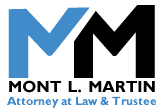Under Wis. Stats. 128.21, qualified individuals follow a payment plan to pay 100% of selected debts over three years without interest or penalty. The payment plan is administered by a trustee under the supervision of a court. Upon completion of the plan, the debts are deemed paid in full.
A case is initiated by filing a Petition, Affidavit of Debts and Order Enjoining Creditors and Appointing Trustee in the circuit court of the county where the debtor resides. For the location of the circuit courts throughout Wisconsin, go to www.wicourts.gov/contact/ccsites.htm. For filing forms and complete instructions, contact our office toll-free at 888-941-2821
The filing fee is $35 in Milwaukee County, $31.50 in all other counties.
The assigned court signs an Initial Order Enjoining Creditors and Appointing Trustee. The debtor must see to it that the Order is forwarded to the trustee. In turn, the trustee holds a noticed meeting to consider the plan for confirmation. After the meeting the trustee submits a recommendation to the court for the plan to be either confirmed or dismissed. Plans that are feasible, funded and undisputed are recommended for confirmation and comprise the majority of cases.
Plans are funded by payroll deduction or by the debtor directly. Payments must commence within the period set by the court in its first order. Payments should be sent to Mont L. Martin, Trustee, P.O. Box 26557, Milwaukee, WI 53226-0557
Yes, creditors may object to a plan and request a hearing. The trustee will make every effort to resolve the matter in dispute. In rare instances, a hearing is necessary.
No, except in the rare instance when a creditor objects to the plan and the court requires testimony from the debtor.
An attorney is recommended, but not required. Attorney fees usually are quite modest and can be paid through the plan.
The initial papers filed by the debtor include an Affidavit of Debts. This paper lists the name and address of each creditor to be paid, the account number and the balance due as of the date of filing. Creditors are encouraged to file a claim if the amount scheduled on the Affidavit is not correct. Claims may be filed at or prior to the meeting. If a creditor does not file a claim, the balance shown on the Affidavit of Debts is presumed to be correct.
Payments to creditors begin after the Court confirms the plan. Confirmation usually occurs within three months after the case starts. Disbursements are made every three months, unless the debtor has good cause to request monthly disbursements.
After a case is filed, it can become necessary to add creditors. The debtor should file an Amended Affidavit of Debts with the court and send a copy to the trustee. The amended affidavit should provide the creditor’s name, address, account number (redacted from court filed copy) and balance due. In turn, the trustee will send a Notice to the added creditor and, if there is no objection, file an amended plan to provide for payment of the additional claim in the remaining term of the plan.
After a case is started, it can become necessary to remove claims from the plan. The debtor should either provide the trustee with proof that the claim has been satisfied, or file with the court an amended affidavit removing creditor, and provide a copy to the trustee and the creditor. In turn, the creditor will no longer be subject to the stay against collection efforts.
Questions not answered yet?
Get in touch with now!
